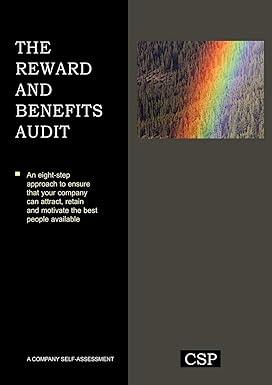Question
Ghost employees helped a fraudster embezzle more than$100,000 from a not-for-profit organization. How could acompany not notice they were paying employees that didnt exist? The
Ghost employees helped a fraudster embezzle more than$100,000 from a not-for-profit organization. How could acompany not notice they were paying employees that didnt exist? The answer was found by talking with the perpetratora 50 year-old, female high school graduate who worked in the organizations accounting department. The fraudster created several fictitious seasonal employees in the companys payroll system. Each pay period, she would pay them along with the rest of the employees, but would keep their paychecks and cash them at a local check-cashing store. Her scheme went undetected for three and a halfyears because the company lacked sufficient controls toprevent and detect this type of fraud. Specifically, no other employee was involved in the payroll process; the fraudster had sole authority for adding and removing employees from the payroll and for running and distributing paychecks each pay period. Additionally, the company didnot have a reporting mechanism for other employees toreport suspicious activities or an internal audit department to review the operations and finances for signs something was amiss. The employee never took vacation, and she came into work sick rather than take time off. The scheme unraveled when the fraudster was involved in a very serious traffic accident that left her unable to work for more than a month. The employee who filled in during her absence discovered that the number of employees on the payroll distribution list did not match the number of employees that were currently working for the company andalerted company management. Management referred the case to law enforcement authorities, but the fraudster had already stolen more than $100,000. When confronted, the fraudster confessed and provided the details of her crime. Shepleaded guilty to the criminal charges and was sentenced to12 months probation and fined $25,000. She was not sued incivil court. The company recovered less than 25 percent of the embezzled funds, and they have no plans to attempt to recover more of their losses. Questions 1. Identify the fraudulent activities the payroll employee committed. 2. What were some of the warning signs that a possible fraud was occurring involving this employee? 3. What internal controls should the company put in place to prevent frauds such as this in the future? 4. Do ghost employees always have to be fictitious, or can they be real employees? Explain.
Step by Step Solution
There are 3 Steps involved in it
Step: 1

Get Instant Access to Expert-Tailored Solutions
See step-by-step solutions with expert insights and AI powered tools for academic success
Step: 2

Step: 3

Ace Your Homework with AI
Get the answers you need in no time with our AI-driven, step-by-step assistance
Get Started


